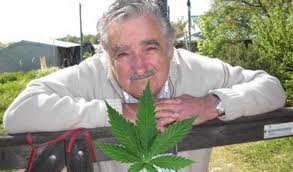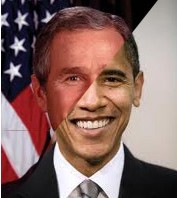Is Latin America heading towards drug legalization?
On Saturday February 11th, Guatemalan President Otto Perez Molina declared that following discussions with Colombian President Santos, he will present a proposal for the legalization of drugs in Central America at the Summit of the Americas, on April 14-15. Guatemalan Vice-President Roxana Baldetti toured Central America to discuss the proposal with regional leaders and garner support for it, starting with Panama on February 29th. Unsurprisingly, the move was greeted by a quick rebuke from the US government who hurriedly dispatched Secretary of Homeland Security Janet Napolitano to the region on February 28th, one day ahead of Roxana Baldetti’s own tour. Baldetti still managed to gain the support of Costa Rica and Salvador. The US is now pulling out its heavy artillery, sending to the region VP Biden, a staunch supporter of the War on Drugs.
These latest developments didn’t come out of the blue but seem to be the latest step in a process started some time ago in Latin America. Let’s go over the timeline as it appears at this early stage:
Colombian president Santos has long declared that the current drug policies do not work and that he is in favor of decriminalization or outright legalization. He has been remarkably consistent in his position, both before and after his election. Santos is also quite aware that Colombia cannot legalize on its own. His predecessor and mentor, Alvarado Uribe, is widely credited for stabilizing his once precarious country, cracking down on drug trafficking and insurgencies and substantially improving the security situation with US help through the much touted Plan Colombia. The powerful Colombian cartels of the 1980s and 90s have been broken, but according to analysts, this has merely resulted in an explosion of mini-cartels; insecurity is still rampant in many parts of the country and is even on the rise in some areas, fueled in large parts by narco-trafficking. The flow of cocaine towards the US and EU, although in slight decline, remains remarkably steady.
Mexican President Felipe Calderon expanded a bloody and dirty war against the powerful Mexican drug cartels initiated by his predecessor Vicente Fox at the end of his mandate. It should be noted that Vicente Fox has since turned into one of the most vocal advocates of drug legalization. The ferocious and brutal Mexican drug war has claimed at least 50,000 victims since Calderon took office in 2006, and despite repeated blows, the two most powerful cartels still seem as powerful as ever. They control large parts of Mexico, having expanded from their traditional territories along the US border, Sinaloa, Durango and Michoacán, and now operate in most of the country; they also expanded to Guatemala, Honduras and Salvador.
Calderon’s determination seems to have been profoundly shaken by two recent events:
- Calderon has consistently complained about the flow of US weapons fueling the drug violence in his country, lamenting lax US gun laws. He was especially incensed by the “fast and furious” debacle, were weapons were deliberately smuggled into Mexico with US government’s blessing.
- After the August 25th, 2011 Monterey massacre that left 53 dead, a visibly shaken Calderon declared: “If … they are resigned to consuming drugs, then they need to find alternatives … and establish clear points of access different from the border with Mexico, but this situation can’t keep going on like this.”
President Calderon has since repeatedly reiterated his call for alternatives, “including regulatory or market oriented options”. Mexico City hosted on February 14-16 an International forum about drugs (Drugs: A Balance to a Century of Their Prohibition) that was inaugurated by no other than President’s Calderon’s wife Margarita Zavala and attended by various members of the Mexican government, including Secretary of the Interior Alejandro Poiré. The forum concluded with an open call for legalization of all drugs.
Chronically unstable and impoverished Guatemala has seen a rapid degradation of its security situation over the past few years thanks to the invasion of the Mexican drug cartels from the North and the street gangs, especially the much-feared “Maras”, spreading from Salvador in the South. Guatemala has one of the highest homicide rates in the world, together with its neighbors Honduras and Salvador, all plagued by drug violence. President Molina was elected in November 2011 on a law-and-order platform, pledging to restore security to the country. He took office on January 14th, and 4 days later started calling for a regional strategy to decriminalize drugs in an interview on Mexican TV. In his February 11th radio interview, he declared: “With all the money and technology received from the US, the problem has not diminished. There was talk of the success of Plan Colombia but all it did was to neutralize big cartels.” He blamed drug cartels for the spiraling violence in Guatemala.
The first indication of the emergence of a regional coalition for drug legalization came on December 6th, 2011, during a meeting of Latin Americans and Caribbean leaders in what is known as the Tuxtla System for Dialogue. Not surprisingly, security was a major theme of the meeting, especially organized crime and narco-trafficking.
The Summit was attended by the presidents of Guatemala, Álvaro Colom; Honduras, Porfirio Lobo; Mexico, Felipe Calderón; Nicaragua, Daniel Ortega; Panama, Ricardo Martinelli; Dominican Republic, Leonel Fernández; and First Vice-President of Costa Rica, Alfio Piva and the Ministers of Foreign Affairs of Belize, Wilfred Elrington; Colombia, María Ángela Holguín; and El Salvador, Hugo Martínez. Chilean President Sebastián Piñera also attended as Special Guest.
They published a one-page joint declaration that expresses the growing frustration with the global war on drugs within the Central American region, and is the clearest regional call for drug policy reform to date. According to the declaration, “… what would be desirable, would be a significant reduction in the demand for illegal drugs. Nevertheless, if that is not possible, as recent experience demonstrates, the authorities of the consuming countries ought then to explore the possible alternatives to eliminate the exorbitant profits of the criminals, including regulatory or market oriented options to this end. Thus, the transit of substances that continue provoking high levels of crime and violence in Latin American and Caribbean nations will be avoided.”
The declaration repeats almost verbatim previous declarations made by President Calderon and clearly bears his mark. It was largely ignored by the US media, even though it represents a dramatic shift in attitude within the Central American and Caribbean region.
There are reasons to believe that this represents a lasting shift in Latin American approach to the intractable drug trafficking problem that has caused tremendous damage to the region over the past 3 decades. There is growing realization that the current prohibitionist approach is powerless to tackle the issue, as any apparent success on one front just displaces the problem. Methamphetamines displace cocaine. Guatemala replaces Mexico. A splinter of mini-cartels take over mega-cartels after their demise, in endless vicious circles. Violence is contained, at best, as seems to be currently the case in Colombia.
Latin American deeply resents that the US has long blamed producing and transiting countries while being unwilling and unable to curb demand at home. Adding fuel to the resentment is the constant flow of US weaponry and the extremely lax US gun laws that US lawmakers are too terrified to challenge. They also realize that they are bearing the brunt of the cost of a war that has been largely imposed on them, and were they somewhat feel as innocent bystanders, especially in transiting countries.
At the same time, Latin American countries are increasingly eager to assert their independence from their often over-bearing Northern neighbor. The current power vacuum in the US, where the government is practically held hostage by a fanatical political fringe, reinforces this desire for independence and creates favorable conditions.
More worrisome for the region, services and transactions are increasingly paid in kind, a move started by the cartels in the late 80s. The substances used as payment end up fueling an explosion of the local demand. As a result, the turf wars between gangs and cartels are increasingly fought over local territories rather than transit routes. The most vulnerable, children, youths and women are cannon fodder on the front line, used as lookouts, couriers, mules or even hired guns.
While the much-publicized “Report of The Global Commission on Drug Policy” in June 2011 certainly was a watershed moment for drug policy reform, the joint declaration of the Tuxtla System for Dialogue may be the seminal moment of legalization. It is probably no coincidence that a number of signers of the Global Commission Report are former head of states of several of the member countries of the Tuxtla System.
In my recently published book about the war on drugs, “World War-D: – The Case against prohibitionism, roadmap to controlled re-legalization”, I concluded that Latin America was the most likely place for the emergence of a coalition of countries pushing for legalization and control of all drugs. The December 6th Tuxtla declaration may be the first step towards the creation of such a coalition.
Global drug policy reform may very well be on its way. We cannot afford to waste the opportunity of the 34 countries of the Americas debating alternatives to the catastrophic War on Drugs on April 14 & 15. We need to mobilize world public opinion behind drug policy reform. This is why I created a petition to US President Obama, Guatemala President Otto Perez Molina, and Vice-President Roxana Baldetti, Mexico President Calderon, Colombia President Santos and presidents of Panama, Costa Rica, Salvador, Honduras and Nicaragua. The petition can be found at: http://signon.org/sign/support-guatemalan-president
Jeffrey Dhywood is an investigative writer, author of “World War D – The Case against prohibitionism, roadmap to controlled re-legalization” http://www.world-war-d.com/. Follow on Facebook: http://www.facebook.com/worldward or Twitter: @JDhywood





